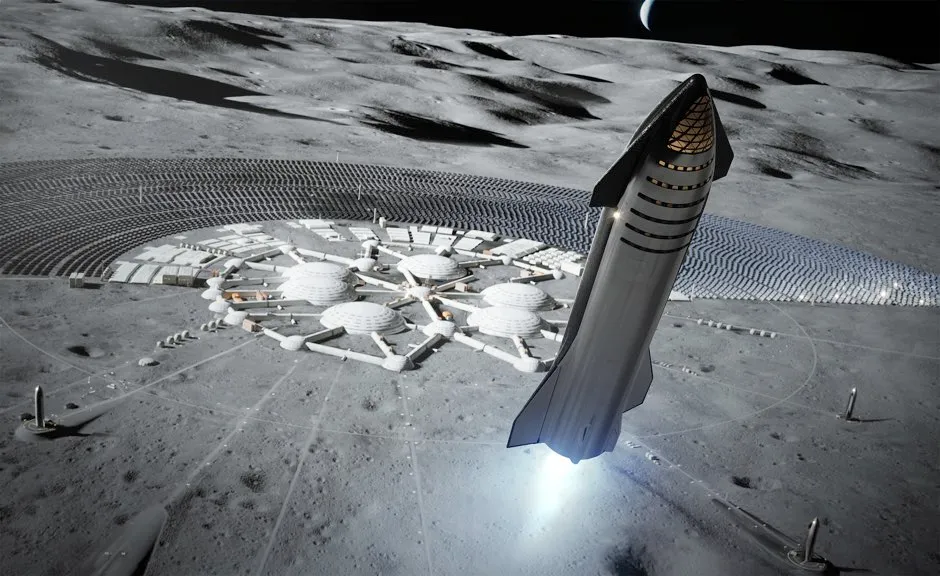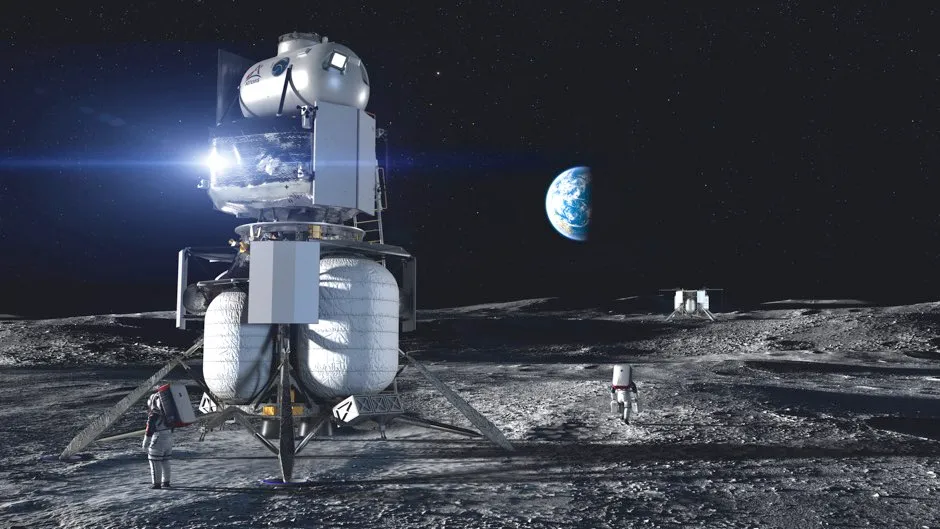Gary Martin is the Vice President for North American operations for the International Space University, but before that he was a senior advisor to the Luxembourg Space Agency and spent more than 30 years at NASA, advising on space science missions, advanced technology development, and human spaceflight.
He explains the significance of the recent SpaceX launch, what private space travel can do that governments can't, and why we need sci-fi to inspire our engineers.
What will the future of private space travel look like?
In the past, national space agencies have built and launched the spaceships that carried astronauts into space. Recently, we saw a private company, SpaceX, launch American astronauts to the International Space Station on behalf of NASA for the first time ushering in a new era of private space travel.

How big a change is this in the way we will explore space?
We’re starting a whole new chapter in humanity's quest to move off this planet, to actually start things we've seen in science fiction.
The SpaceX launch, although it was still bought by government funds, is a huge change. It's something I've been waiting for all my career in that before, only governments had the kind of money, could take the liability, and actually had permission to go into space and explore this frontier.
Now we've got a commercial company that has shown it can take an astronaut up to space into low Earth orbit.
Read more about space exploration:
- Space exploration: how might the next 50 years progress?
- Elisa Raffaella Ferrè: What happens to the brain in space?
- Move over, Mars: why we should look further afield for future human colonies
What kind of possibilities does this open up?
There are a couple of private space station companies out there [for example Axiom Space and Bigelow Aerospace] but until now you had no way to get there, because you would have had to get a government to sell you a seat and the governments have other priorities and seats are precious.
Now SpaceX could sell you a trip to your private space station. And if all these countries are going to the Moon, there are a number of companies that are interested in providing communications around the Moon, providing resources and fuel and water and power.
There's all kinds of economic possibilities in the next couple of decades that are now empowered. This is very exciting; this is a milestone that we will look back on and say, ‘This is when it started; this is when it really took off.’

How do you see private space travel opening up the exploration of the Solar System?
At the beginning of the Internet, you would never ever think of what a role it plays in our entire world right now. This is what I believe space is going to be like.
So how do you start that? Well, this is where governments absolutely do work. It was NASA putting so much money into SpaceX that allowed it to have the capability to take humans into space. Now, SpaceX can amortise [pay off] that investment to give anyone a ride, if they pay the price.
And that's the difference, the government would never have that capability, they're not going to become an operational activity. But SpaceX is a private company that has motivations to do private things in space.
Read more about Moon bases:
- Race to the Moon: Inside China's plans to build a lunar base
- Andy Weir: Building a base on the Moon, and crafting believable sci-fi
- Lunar Orbital Platform-Gateway: the next space station will orbit the Moon
In Luxembourg, we looked at where are the places you could make money in space. Well, it’s very expensive to take things from the Earth and use them in space. So, if you assume that governments are going to the Moon, you need to make everything you want for civilisation in space at some point.
At these Moon bases, you're going to want to not only be out there doing science, exploring or having tourism there, you're going to want to go have a beer at night, you're going to want to have a pizza, you're going to want a comfortable, safe room.

All of these materials and things and ideas have to be constructed by people in businesses. So the business opportunities at some point, maybe two decades or so from now, are actually limitless.
Once there's a foot hold of people on the Moon, then people will be going to Mars. We’ll learn how to live safely, we’ll learn how to do things in space. There's a lot to learn, and there's a lot of business opportunities in learning those things.
How many companies around the world do you estimates are building launchers, either for humans or smaller robotic craft?
Every day I read a number of clippings to try to stay current and I’ll tell you, there's a new launcher system proposed every week. There are launcher systems all over the world in many, many countries, mostly though, those are to put things in low Earth orbit.
The countries that can launch people are China, Russia, and the US. India is working towards that capability.
In the commercial role, only SpaceX has launched people into orbit, in addition there's only a few other US companies working to develop the capability: Blue Origin, Sierra Nevada, and Boeing. It's a handful but you wouldn't expect it to be a lot till there's a lot going on and then people will rush to the marketplace.

Think about it, if you're a country, let's say you're a Middle Eastern country with a lot of money, in a few years you could automatically go into the space age by just buying a private space station and buying tickets to get there from SpaceX.
Now you're in a country that went from no human spaceflight to your own space station. Because you can buy it.
SpaceX have some pretty wild plans, including their Starship design which the company is reported to be prioritising in order to carry up to a 100 people to the Moon or Mars. How seriously should we be taking these proposals?
If you look at Star Wars movies and you look at Star Trek, whatever these inventive writers envision for the future, it gives the real engineers something to aim for - and some of it comes true.

So, in a way, Elon [Musk, SpaceX CEO] is setting a vision, and engineers, like myself, all want to do exciting things. And so whether 100 people are going to be going to Mars anytime soon, that may or may not happen.
But there's a lot of engineers and a lot of people who want to dedicate their lives to doing something exciting, that is different and that has never been done before. And so he energises amazing people who have already shown the amazing things they're able to do in space and he's gotten their creativity working.

